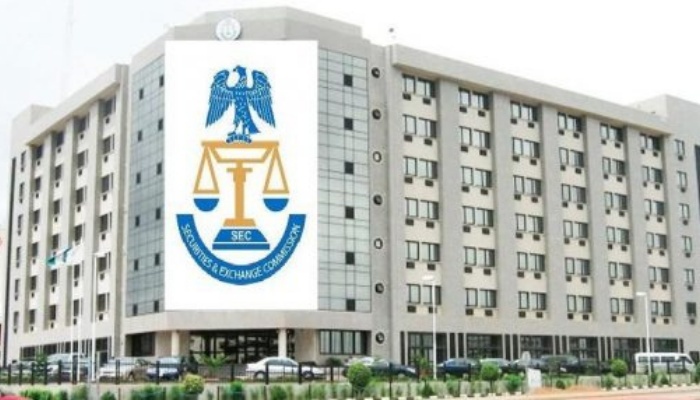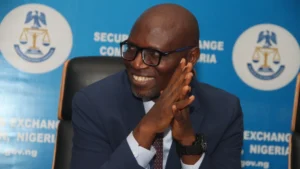
The Securities and Exchange Commission (SEC) has revealed that over ₦2.7 trillion has been raised in Nigeria’s capital market by banks and other companies.
This amount, which includes equity capital, excludes funds raised by fund managers. Notably, banks accounted for approximately ₦1.7 trillion of the total through recapitalisation exercises.
Dr. Emomotimi Agama, the SEC Director-General, disclosed this during his keynote address at the recent commission’s 2024 Journalists Academy. Themed: ‘Fintech: Leveraging Technology to Drive Capital Market Participation,’ the event emphasised the shared responsibility of enhancing transparency, fostering investor confidence, and raising awareness about the capital market’s role in economic growth.

Speaking on the commission’s ongoing efforts, Dr. Agama highlighted significant steps taken to reposition SEC’s operations in response to shifting macroeconomic conditions. The commission has created several specialised departments to strengthen regulation and improve service delivery. These include the Fintech and Innovation Department, focused on regulating crypto-assets and fostering technological progress, and the Derivatives and Risk Management Department, which monitors derivatives and forex contracts for differences (CFDs).
Other new departments include the Office of Municipal Bonds, which facilitates subnational bond issuances, and the Office of Unclaimed Monies, designed to tackle the issue of unclaimed dividends. These changes aim to address emerging risks and modernise the regulatory framework to support market developments.
In addition to regulatory adjustments, SEC has also prioritised collaborations with key stakeholders. For instance, it has partnered with the Nigerian Financial Intelligence Unit (NFIU) to address Nigeria’s placement on the Financial Action Task Force (FATF) grey list. Dr. Agama stressed that achieving compliance with FATF standards is crucial for enhancing Nigeria’s international financial credibility, avoiding economic sanctions, and ensuring sustainable growth in the financial sector.
Dr. Agama further celebrated SEC’s recognition as one of only 11 government agencies in Nigeria to achieve 100 percent implementation of recommended reforms. This accomplishment has helped improve the country’s business environment and set a benchmark for regulatory excellence.
The recapitalisation exercise initiated by the commission has raised ₦1.7 trillion for the banking sector, which has contributed to greater financial stability and strengthened investor confidence. Furthermore, SEC approved the Ministry of Finance Incorporated Real Estate Investment Fund (MREIF) to tackle Nigeria’s housing deficit. The fund supports the federal government’s One million homes initiative, a program designed to provide affordable housing for Nigerians.
Looking ahead to 2025, Dr. Agama outlined key focus areas for the commission, including the enhancement of market transparency, expansion of financial inclusion through innovative technologies, and deepened collaboration with domestic and international stakeholders. These strategies aim to ensure that Nigeria’s capital market remains robust, inclusive, and a catalyst for the country’s economic transformation.
Discover more from Astudity Limited
Subscribe to get the latest posts sent to your email.